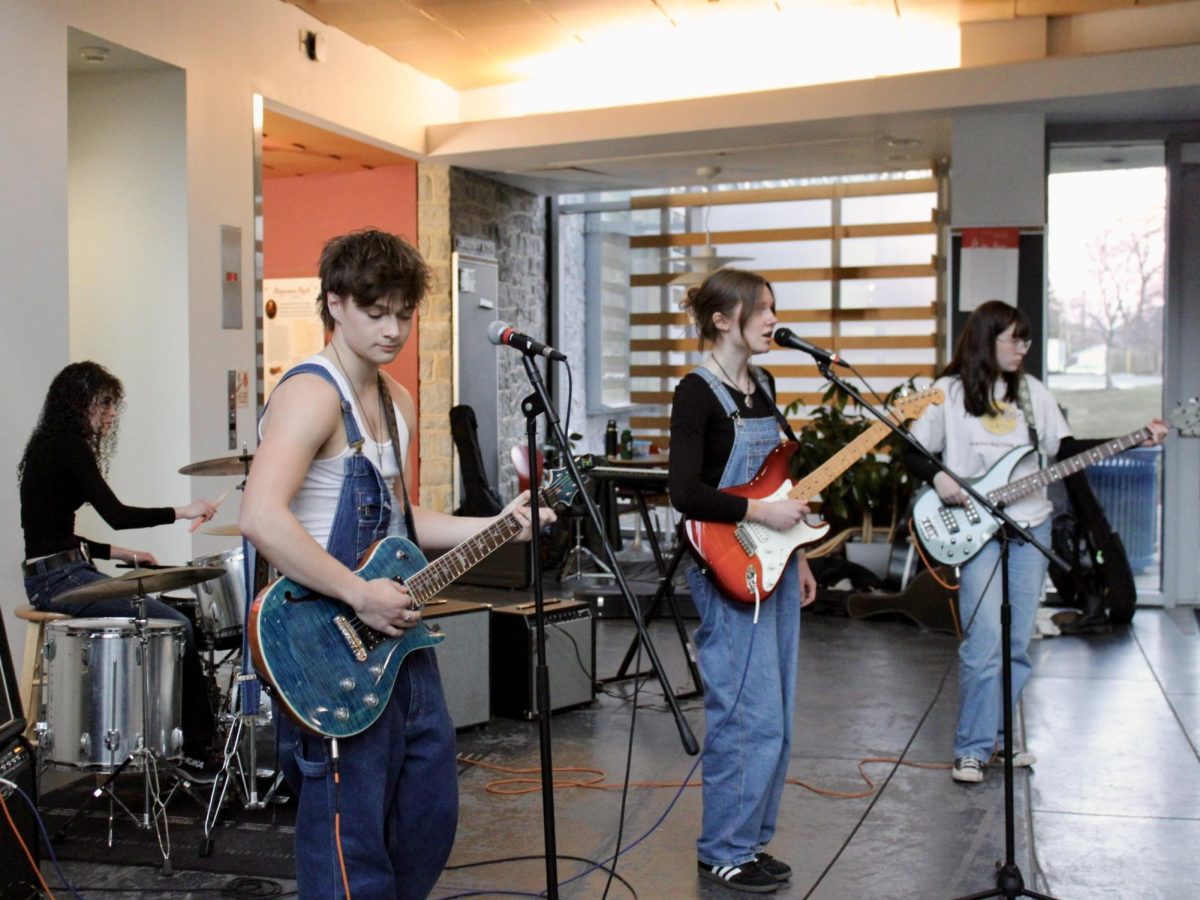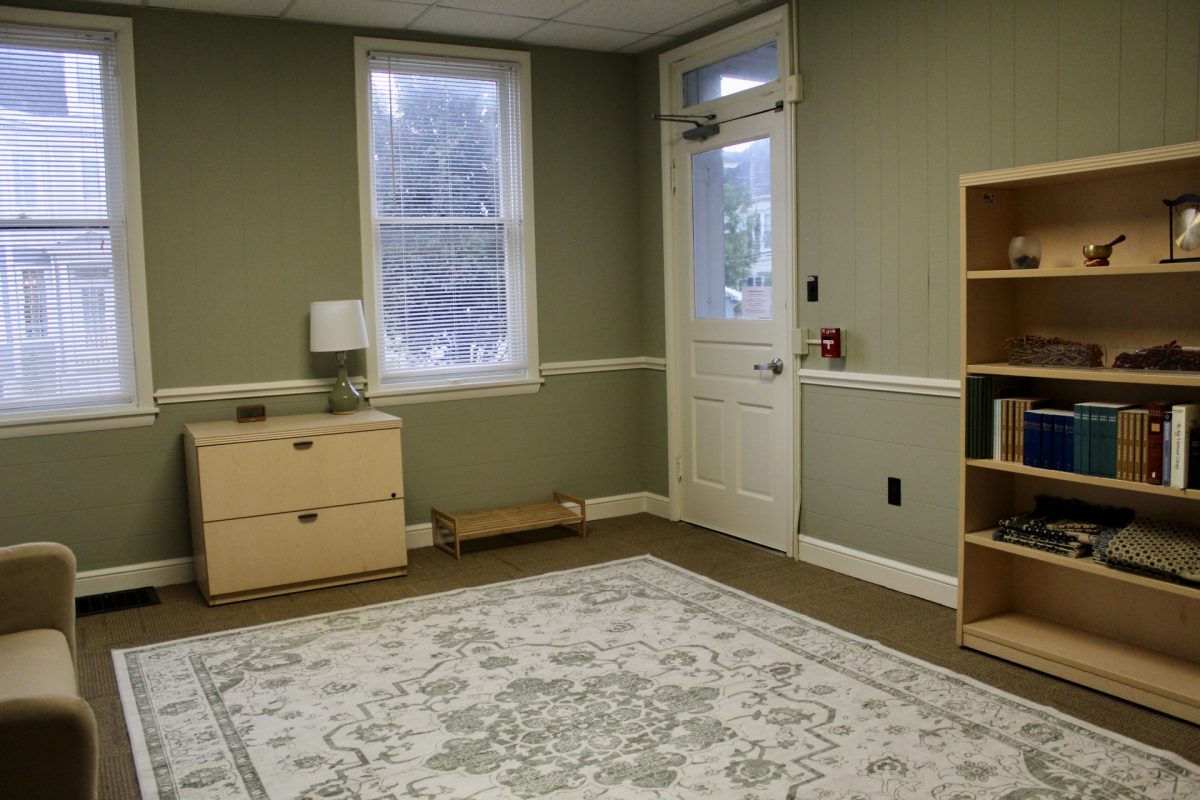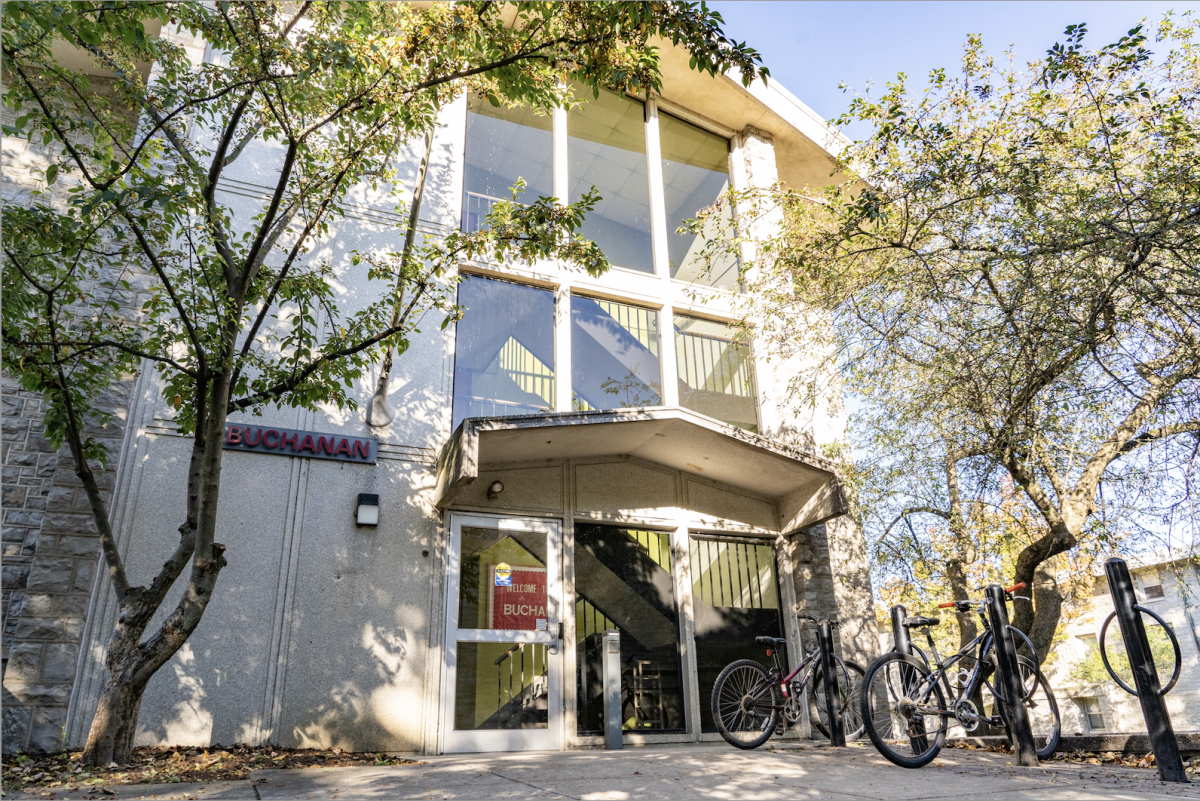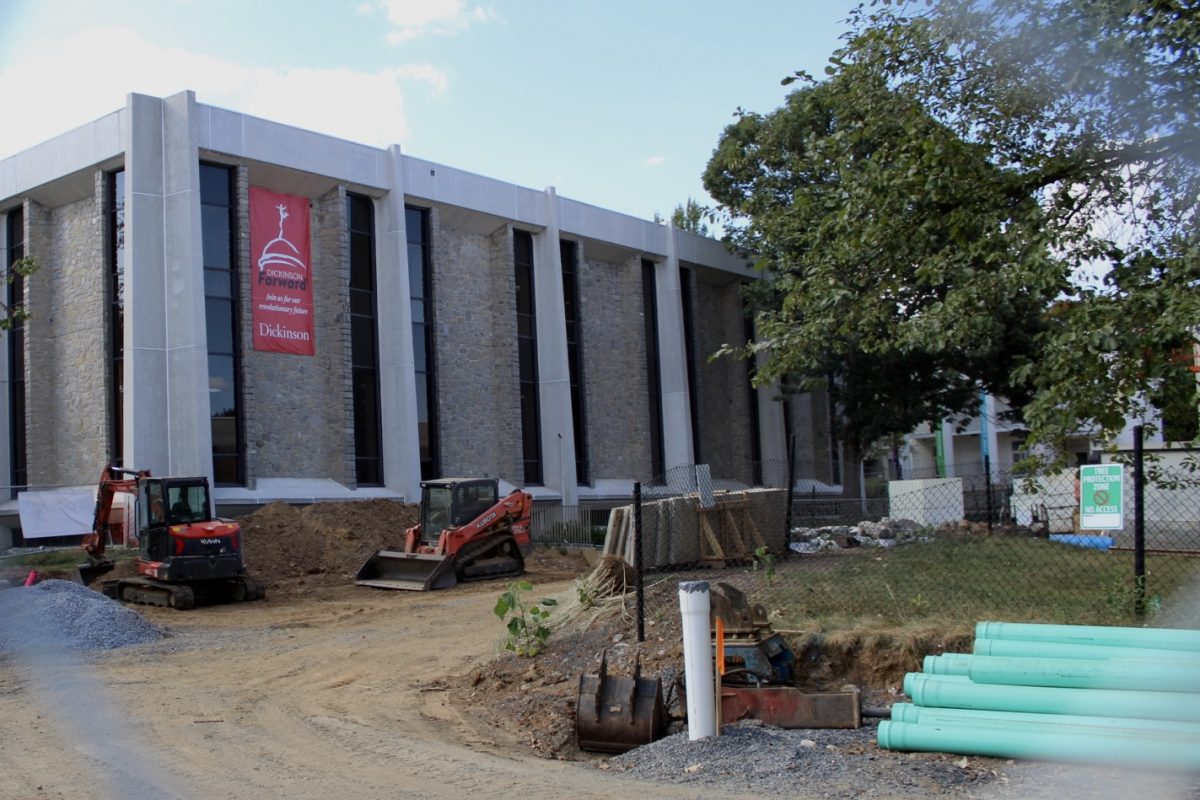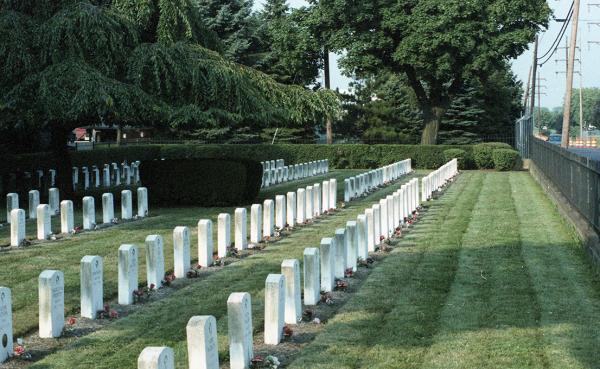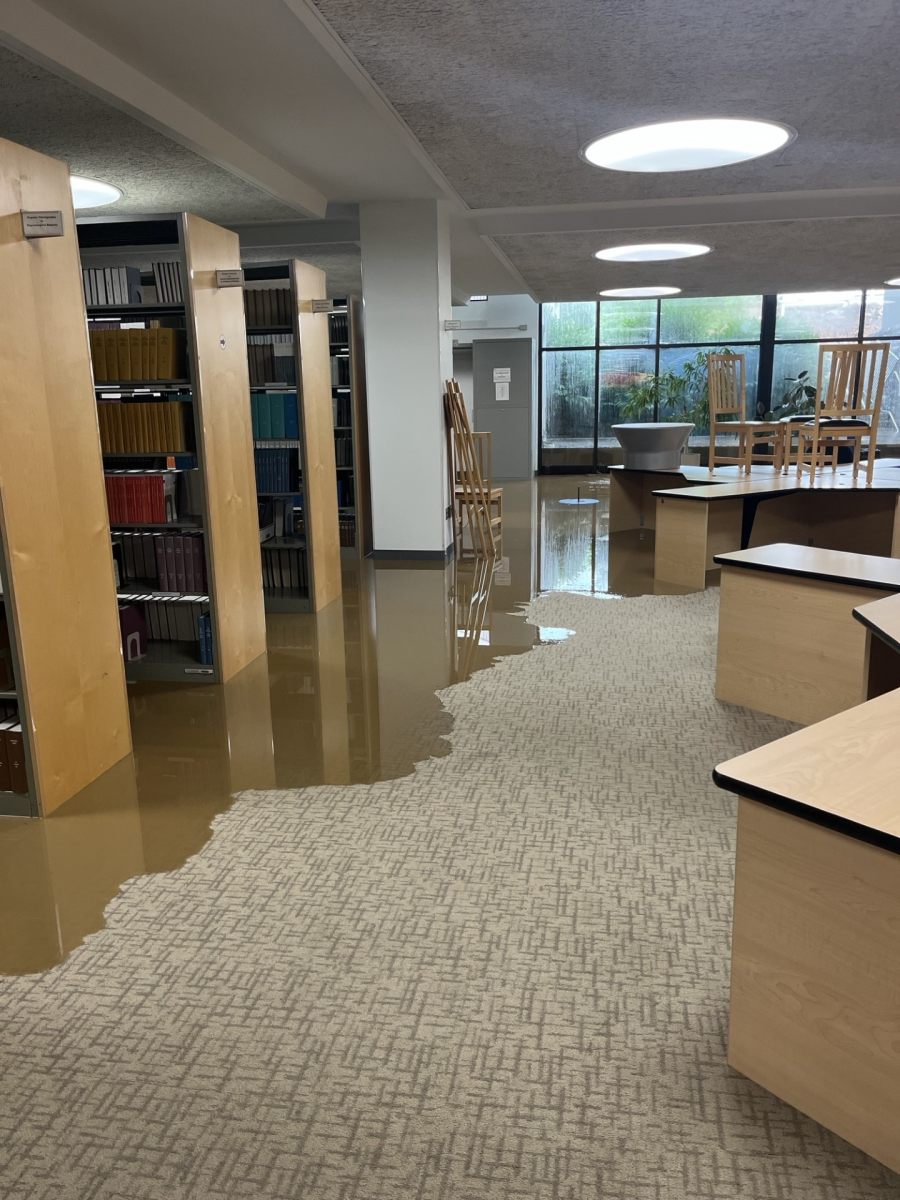“The music scene [at Dickinson College] is the heartbeat [of the campus],” according to staff member Moses Krueger ’24. However, not many students know what goes on behind the performances.
Dickinson College now has six active bands that are run by students, including High Street, Liquorish, No Permit, Pants Optional, Sheetcake and Ticketpunchers. The bands often play at events like Art Fest, Spring Concert, Jormal, and other open mic events across campus.
“[H]aving a group of people that you can be utterly creative with and completely free to express yourself [with is] so powerful,” says Ari Lissack ’25 from Liquorish. He adds that it’s a unique connection that most people don’t get to experience. Erin Gallaway ’25, also from Liquorish, explains how “music connects people in ways that” nothing else can; “We just understand each other in a different way through music.” Owen Barry ’26 from High Street says his band became “like a family” to him, and Sophia Grossman ’27 from Pants Optional says “chemistry between yourself and your bandmates is one of the most important” factors that determines the harmony within a band.
Students also find support in the broader community that exists between bands. “Other musicians are your biggest fans,” says Alex Arnold ’27 from Pants Optional. Sarah Forrester ’28 of Sheetcake explains how her young, freshman band “look[s] up to” and finds support through the “mentorship” of other, older bands as they start to make a name for themselves. Her bandmate, Maggie Barry ’28 (no relation to Owen Barry), explains how, eventually, those responsibilities will “get passed down” to them as time goes on and new bands form.
Owen Barry explains how he feels like all band members feel “like there’s a million things going on and like two different worlds [that] they’re a part of,” and how that gives them a special bond and mutual understanding. Some of this bonding comes from the similar challenges they face as a student while making music and pursuing other passions.
Emilio Gurany ’25 from Ticketpunchers says every student in a band serves as a “band manager,” since so much communication and coordination is required for every show. “Sometimes I wish people understand how much time, effort and passion that we have to put into every single performance” says Huong Nguyen ’27 from No Permit. From rehearsals to setting up equipment and writing original songs, “It’s a lot of set up that no one sees.”
Members also have to navigate time management and setting boundaries when it comes to separating music, school, and life. Owen Barry says he has to decide every day if he’s going to spend more time on schoolwork or music. Quinn Hart ’26, who recently stepped down from High Street, said that, as a group that “took things very seriously,” his band “made my world very, very small,” since he had to dedicate the majority of his time towards band practice, shows and recording in the studio. Hart also says that “when you treat [the band] as a business,” it can be difficult to keep your professional and personal relationships separated. If he were to do it over again, he says he “would do it very differently… I would […] make it more of a fun thing rather than my whole life.” Many other bands on campus are doing just that and focusing on making music “for fun,” like Grossman, who says she’s “enjoyed exploring [her] musical creativity in an environment that isn’t competitive [or] oppressive.”
However, there are some constraints that limit performance opportunities due to rules that Dickinson and Carlisle community have for loud music. “It sucks, in a way, because the school is not really set up for the music scene,” says Finn Murray-Campbell ’26 of High Street. “They haven’t been the most supportive of venues and house shows… [we keep] trying to play and then [get] shut down.” Nguyen agrees, she even says that’s how her band got its name, No Permit, because the first house party they played at got shut down for loud music. This can be discouraging for student bands who want to play at those venues since, for some, it’s a big deal. “I think every band’s dream is to play at a party… because that’s where they can play for the longest… possibly getting paid,” she says.
Even though the school doesn’t have a perfect relationship with bands, the music scene wouldn’t be where it is today without the help of Dickinson staff and student organizations. According to Krueger, “COVID really killed the music scene,” and it took a lot of hard work from people like Brenda Landis, Walker Kmetz ‘25, Emily Engoran ‘24, Jay Case ’25, and everyone on the Jam Space Executive Board and WDCV (the school radio), to restart the Jam Space club and make the music culture as diverse and popular as it is today. “I’m really proud of everybody who’s been involved in the music scene and continues to be involved… I’m glad that we’re building that culture up at Dickinson,” says Arnold.
Encouraging the student population to show up and support bands at open mic and community events is a shared message from all bands on campus. “[Y]ou don’t realize how many talented people are around,” says Owen Barry, “there are so many cool people doing cool things all the time and you just miss it if you don’t go to see it.” And when students go to events, they should bring the energy! “Half of [the performance] is what the audience gives you… it makes you play better,” says Krueger.
Students who are interested in getting involved with Jam Space may feel hesitant at first, Owen Barry says that he thinks there’s “kind of weird image that [starting a band] is hard to do,” but he wants students to know that joining or starting a band can be very easy. Murray-Campbell points out that Jam Space has most of the things you need to start making music, so there are not a lot of obstacles to prevent anyone who’s interested. In the words of Sheetcake members Forrester, Maggie Barry and Kate Villiger ’28, the easiest way to start is to simply ask other students “Wanna jam?” Villiger says “seek and you shall find, it’s pretty easy to look around and find other people that want the same thing as you.”
Each band consists of students with varying backgrounds and all have different plans for the future, so no one should feel discouraged about their abilities with music if they are curious about joining the community. Luke Heilmann ’25 says that before college, he didn’t consider himself “a music nerd,” but joining Liquorish helped him “rediscover a passion that I didn’t really think I had.” “[I]n reality, we’re not that good [of] musicians,” said Lissack, jokingly, “but we are really good at having fun.”



